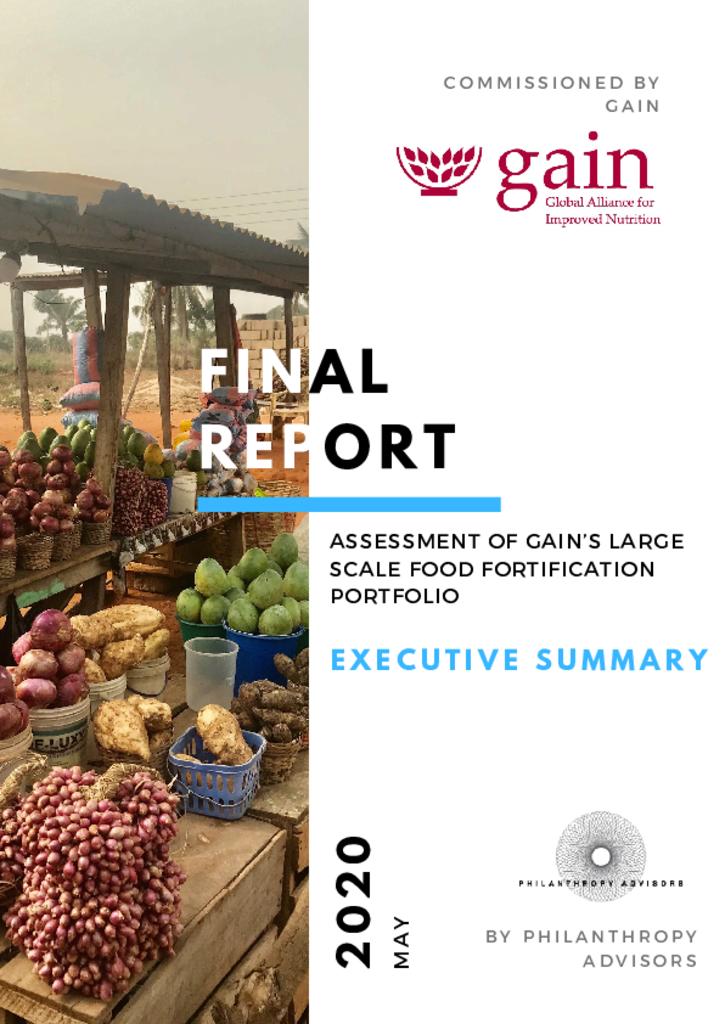Lack of diversity in many people’s diets means that more than two billion people globally are deficient in at least one micronutrient, which has a transversal impact on individuals, communities, and nations. It is within this context that GAIN’s Large Scale Food Fortification (LSFF) portfolio of projects, which operate both at national and global levels, has been deployed, with the aim of increasing micronutrient intakes through the addition of bioavailable micronutrients (vitamins and minerals) to commonly consumed foods.
In 2019, GAIN commissioned Philanthropy Advisors (PA), a consulting firm specialized in the evaluation of development programs, to conduct an independent assessment of its approach to LSFF. This assessment was designed to present a thorough understanding of the relevance, targeting and implementation of the overall portfolio and its constituent projects, program/project activities, and of GAIN’s contribution to attained outcomes (globally or at national level). The specific objectives were to:
- Assess the relevance, international consistency, and feasibility of GAIN’s theory of change at global and national levels; and
- Assess the extent to which its efforts are likely to establish, improve and sustain fortification programmes at the national level and be effective in increasing global political and financial support for fortification through advocacy initiatives and diverse platforms (Global Fortification Data Exchange (GFDx), Global Fortification Technical Advisory Group, (GF-TAG)).
Using a theory-based approach, the analysis covered the three pillars of the LSFF portfolio theory of change (i.e., 1) demand creation, 2) increasing the accessibility of fortified foods, and 3) improving governance of fortification programs), and included an in-depth analysis of three national contexts: Bangladesh, Ethiopia, and Nigeria. The focus was on collecting existing evidence in literature, documentation, and through stakeholder consultation. To obtain the clearest possible picture of GAIN’s contribution to LSFF objectives and results, PA consultants conducted interviews with GAIN staff, donors, partners, and consultants as well as with other development organizations and subject experts.
A summary of the key findings and recommendations is available in the executive summary.
